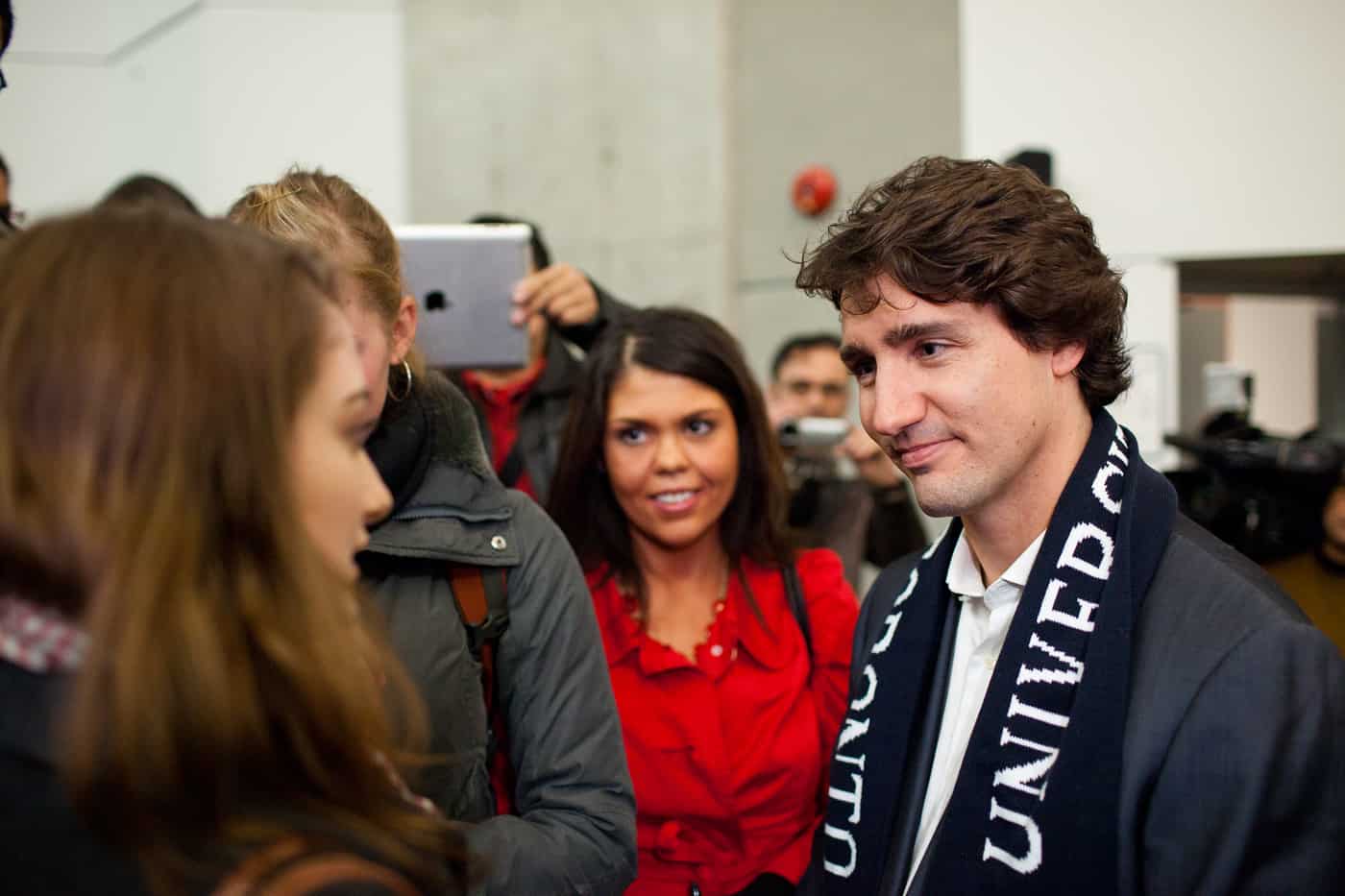In the House of Commons, Liberal Party leader and member of parliament Justin Trudeau may be third, but in public opinion polls he’s quite clearly the de facto leader of the opposition. Even Conservative insiders have acknowledged this growing reality. His charismatic presence seems to have cast a shadow over other players on Parliament Hill. What happened to the cunning strategist, Prime Minister Harper, or his once politically wounding attack ads? The New Democratic Party (NDP) now struggles to assert its presence. What happened to the late Jack Layton’s electoral victory and legacy? What happened to the formidable Thomas Mulcair, current NDP and official opposition leader?
There are many answers, but one stands out: there is a surge in popularity for Trudeau, one inextricably linked to his political strategies. For Trudeau, it is no longer politics as usual, but a new sort of politics — one that has been very successful. He has gone so far as to adopt elements of President Barack Obama’s election strategy: to go positive, to seek national unity, and focus on the economy and social issues. He challenges what he sees as the status quo. He is seeking “positive” politics, sprinkled with messages of hope.
Trudeau emphasized this strategy at the Liberal convention recently (and in daily missives to his party faithful). Present at that convention was a popular economist and former United States Treasury Secretary, Lawrence Summers, who was appointed by President Obama. Summers’s invitation supports the idea that Trudeau is, indeed, attempting to draw on President Obama’s reputation by associating himself with former Obama administration officials.
By virtue of his position as the new face and embodiment of a new Liberal Party image, Trudeau is in it to win it. He is not “just visiting,” as the Conservative attack machine once charged against his predecessor, Michael Ignatieff.
Public opinion polls suggest Trudeau is no visitor, nor is he “in over his head,” as another Conservative Party ad campaign would have you believe. Canadian voters are warming up to him, even in provinces where he once had great political mountains to climb in order to win voter confidence.
Image is another key area of Trudeau’s strategy. We know that Trudeau is trying to present a rejuvenated Liberal Party to Canada, with newer and younger faces. At the convention, Trudeau and his team focused attention on their grassroots outreach approach — a strategy aimed at bringing formerly untapped voters into the party’s fold. Similar strategies have been adopted to great effect in the past, particularly in President Barack Obama’s first presidential campaign in 2008.
Furthermore, the Liberals’ positive turnaround in fundraising suggests their grassroots strategy is working. If this fundraising increase continues, Trudeau’s Liberals will be hard to beat at the polls, especially while they are being led by such a charismatic figure.
Before Trudeau introduced his party and its vision at the convention last week, many were asking if the new kid on the block could pull through. In the end, the audience consensus was clear; the convention was a success: There is a new and better organized Liberal party waiting in the wings.
Conservative strategists are now conceding, even publicly, that their once-successful attack ad strategies, deployed against Trudeau’s predecessors, are no longer effective. Such attacks are now being perceived by some within the public as too negative, and as a result drive support in the direction of Trudeau’s “positive politics” strategy. This explains why Trudeau has maintained a positive posture, preaching hope and unity in the face of the opposition’s negativity. As he mentioned in his address at the convention: “Let [the Conservatives] focus on me. We’ll stay focused on Canadians.”
It’s important to take this wave of popularity with a grain of salt, and an understanding that political support is a fickle thing, often difficult to maintain over sustained periods. To understand the dynamics of political popularity, we need only to look back to recent history, a time when the NDP’s orange wave, driven by the late Jack Layton, blew the Liberals right out of official party status. Despite the support for Trudeau, it would be naive of the Liberals to count others out just yet.
So far, Trudeau is winning outside of the House of Commons, where the real votes are. The charisma gap left in Canadian politics after the death of Jack Layton is waiting to be filled, and Trudeau is by far the most attractive candidate. Popular politics are back in this country, and with a new, “positive” strategy.
Tshweu Moleme is an analyst with the BRICS Research Group at the Munk School of Global Affairs.


